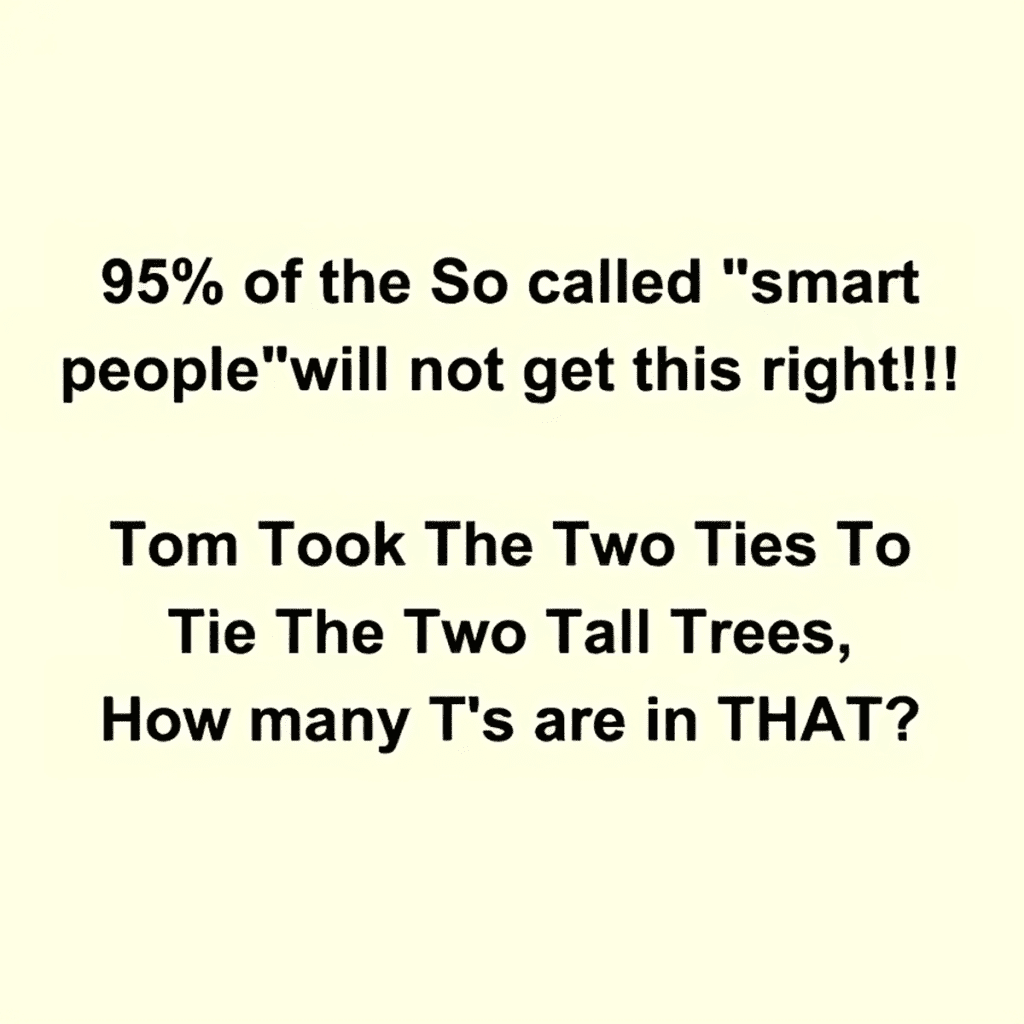Have you ever encountered a riddle that seems deceptively simple, only to find yourself caught in a web of wordplay? This is precisely the case with the classic riddle, “Tom Took The Two Ties To Tie The Two Tall Trees, How many T’s are in THAT?” The answer, seemingly straightforward, lies in the subtle trickery embedded within the question itself.

The riddle plays on our natural inclination to focus on the literal meaning of the words. We immediately count the number of “T”s in the phrase “Tom Took The Two Ties To Tie The Two Tall Trees,” only to be thrown off by the final question, “How many T’s are in THAT?” The word “THAT” itself contains two “T”s, leading many to miss the obvious answer.
This riddle highlights the power of language and its ability to manipulate our perception. By cleverly framing the question, the riddle forces us to engage in a mental gymnastics, leading us away from the straightforward answer. It’s a playful reminder that sometimes, the most obvious answer is hidden in plain sight, waiting to be uncovered by a keen eye and a sharp mind.
The riddle’s popularity stems from its ability to engage both children and adults in a fun and thought-provoking way. It’s a simple yet effective exercise in critical thinking, encouraging us to pay attention to detail and question our assumptions. It also serves as a testament to the versatility of language, its ability to be used not just for communication but also for entertainment and intellectual stimulation.
Beyond its playful nature, the riddle offers a valuable lesson in navigating the complexities of language. It reminds us that words can be deceptive, that they can be used to mislead and manipulate. It encourages us to be mindful of the language we use and to be critical of the information we receive.
In conclusion, the riddle “Tom Took The Two Ties To Tie The Two Tall Trees, How many T’s are in THAT?” is a testament to the power of wordplay and the importance of critical thinking. It’s a reminder that sometimes, the simplest answer is the most overlooked, and that language can be a powerful tool for both amusement and deception. So next time you encounter a seemingly simple question, take a moment to pause, think critically, and consider the possibility of a hidden trick. You might just be surprised by the answer.